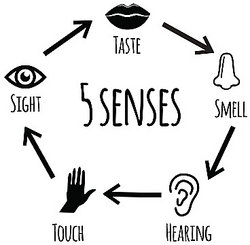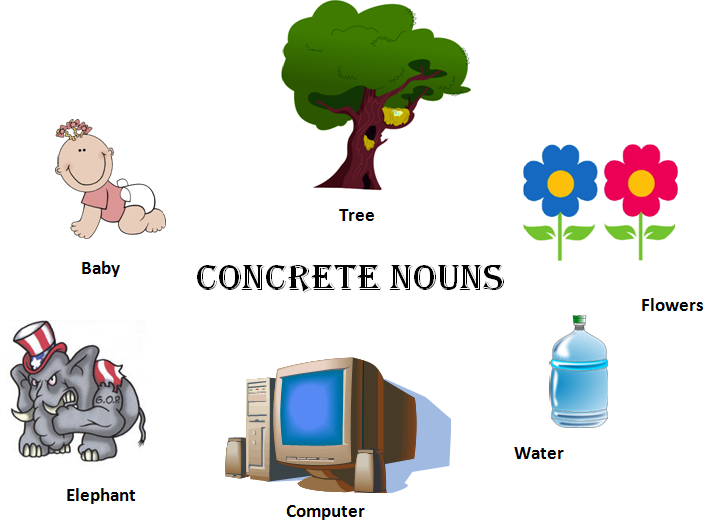You probably remember that nouns are words that name people, animals, places, things, and ideas. Nouns in English can be abstract and concrete.
What is a concrete noun?
Concrete nouns denote things that have some physical form and that you can experience through your 5 senses — sight, smell, hearing, taste, and touch.



Examples of concrete nouns are:



Concrete nouns can be:
- People and animals: mother, teacher, cat, Emily, tiger, baby
- Places: London, island, France, Alaska, Walmart, garden
- Objects: pen, bottle, rice, computer, letter, table, milk
You can touch them, see them, hear them, and maybe even smell them or taste them.
What is an abstract noun?
Abstract nouns denote things that don’t have any physical form, like events, ideas, qualities, concepts, emotions, states. You can’t experience through your 5 senses. Something that is abstract exists only in our mind.
Examples of abstract nouns are:



- love, hate, sympathy, honesty, freedom, truth, knowledge, progress, friendship, etc.
Abstract nouns can be:
- Feelings: anxiety, happiness, confusion, sympathy
- States: freedom, peace, misery, chaos
- Emotions: anger, happiness, love, sorrow
- Qualities: beauty, honesty, courage, patience
- Concepts: culture, faith, energy, motivation
- Ideas: democracy, knowledge, thought, wisdom
- Events: adventure, birthday, holiday, marriage
How to use abstract and concrete nouns
1. Most concrete nouns may be used both with an indefinite and definite article and may be singular and plural.
- an ocean – the ocean – oceans
- an avenue – the avenue – avenues
2. Unlike concrete nouns, most abstract nouns are used with no (zero) article and in singular.
- Love is a powerful emotion.
NOTE: If an abstract noun is qualified by a defining relative or by the preposition of + noun phrase, it can be used with a definite article ‘the’.
- The education that I received in my college is internationally recognized.
3. Many abstract nouns can be both countable and uncountable based on the context, and usually these forms differ a bit in their meaning. If they are countable, they may be used in plural.
Compare:
| Countable | Uncountable |
| Peter acquired several useful skills on a hike. | Just have a look at those beauties on the beach! |
| What qualities do you need for this job? | This restaurant is known for it’s superb quality. |
| The Ministry of Culture provides support to young artists. | The Institute develops targeted programmes for different cultures and languages. |
| Mary has visited Italy many times. | Hurry up, you don’t have much time left. |
| Were there any troubles on your route? | Please be careful not to get in trouble. |
| Just have a look at those beauties on the beach! | People do their best to preserve the beauty of their city. |
Watch this video from Learning Upgrade App to see abstract and concrete nouns in use:
See also:
Countable Nouns and Uncountable Nouns